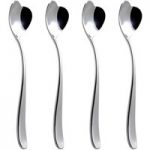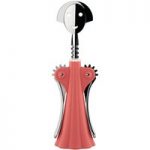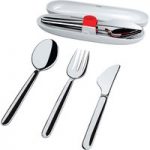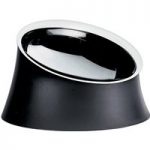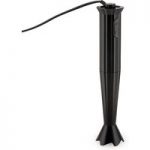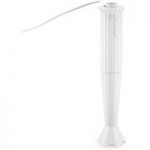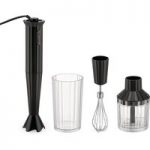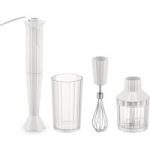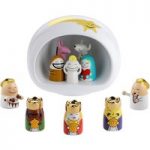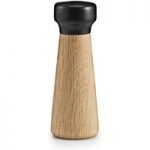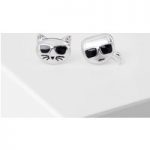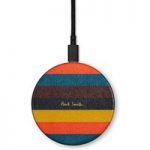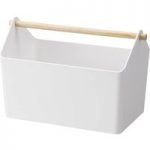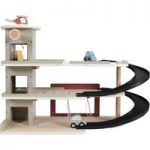Disclosure : This site contains affiliate links to products. We may receive a commission for purchases made through these links.
Alessi Anna G. Corkscrew – Silver

The Smiling Anna G A best seller since it was first produced in 1994, the Anna G. corkscrew is a tongue-in-cheek homage to a real woman. Her smiling face has become something of a cult figure over the years, giving birth (so to speak) to a rich family of objects for the table and kitchen in a wide range of materials.About Alessi “A true design work must move people, convey emotions, bring back memories, surprise, and go against common thinking.” – Alberto Alessi Founded in 1921 as a “Workshop for the processing of brass and nickel silver sheet metal, with foundry”, Alessi has always stood out for the high quality of its products. In almost a century of history, the company has gradually evolved to become one of the leading “Factories of Italian design”, capable of applying its expertise and excellence in design management to many different product types. Open to change and international development, Alessi at the same time has a strong bond with the traditions and cultural background of its area and continues to be synonymous with handcrafted objects produced with the help of machines. Alessi’s mission is now one of translating its quest for the most advanced cultural, aesthetic, design and functional quality into mass production. Designer products are the result of the constant reconciliation of art and industry, of the “Immensity of Creative Potential” and the needs of the market. The company is committed to a design approach in which the most advanced expression of international creativity is always balanced against the desires of the general public. Alessi has been described as a “Dream Factory”, which uses its products to make people’s dreams come true, providing them with the Art and Poetry that they seek. Alessi: The Design Factory A journey inside and outside Alessi, to discover a Factory of Italian Design Alessigraphy: the geography of Alessi production SINCE THE COMPANY’S foundation in 1921 the majority of Alessi products have been manufactured through the cold working of metals, a tradition that is kept alive today by the skilled workers at the Crusinallo plant in Omegna. Over time, Alessi also began to work with many other materials, such as porcelain, glass, wood, and plastic… A specific production method was developed for each one. Even when production takes place outside the Crusinallo plant, Alessi’s guidelines guarantee the company’s original production quality standards, continuing to reconcile industrial technological complexity with an artisanal eye for detail. The objects produced from the different materials are manufactured in various production plants across the world. They remain original Alessi objects in that they are conceived with the same design excellence and produced with the same attention to quality that sets the company’s products apart. The Designer: Alessandro Mendini Alessandro was born in Milan in 1931 and graduated in 1959. He is an architect, artist, designer and design manager, theorist and journalist and began his profession at the Nizzoli studio. In 1970 he gave up planning to concentrate on journalism relating to architecture and design: He has edited Casabella, Modo and Domus through which he has transmitted his ideas of renewing the world of design. Along with Branzi and Sottsass and with his presence in Global Tools and Radical design, he was the main force behind the renovation of Italian design in the 80’s. In the late 70’s he went back to designing and various projects and in 1979 joined the Alchimia Studio. This group of radical designers in the 80’s in Memphis had upset functionalist designers by designing objects for sheer artistic pleasure and by referring to popular culture and kitsch. This was well outside the norms of industrial production and practicality. With Alchima he created objects, furniture, environments, paintings, installations and architectural works. Among his most significant works during this period were the Groningen Museum and the reinvention of the Alessi image for whom he is meta-projectual consultant. In 1989 he opened the Atelier Mendini in Milan with his brother Francesco and continued his career as a sophisticated, pop designer. The key element is always a clever hybrid between art and design resulting in popular objects that achieve great commercial success. He died on 18 February 2019.









